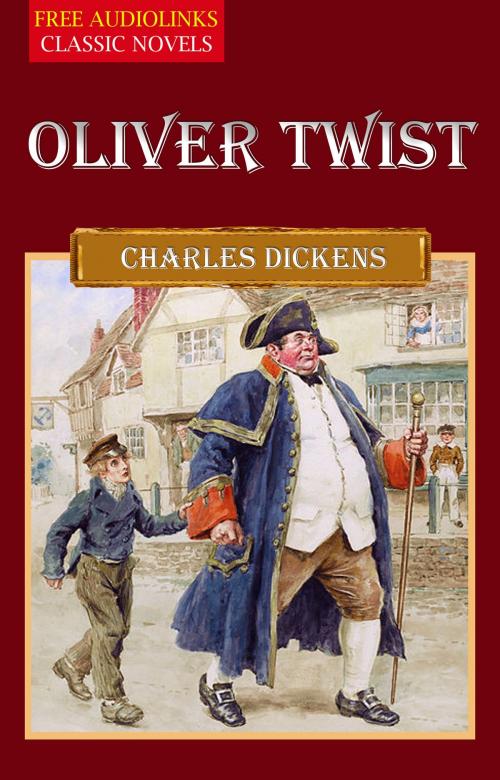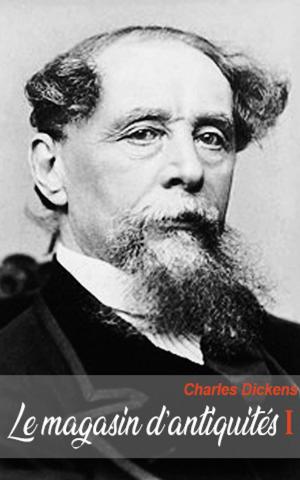| Author: | CHARLES DICKENS | ISBN: | 1230000187553 |
| Publisher: | CHARLES DICKENS | Publication: | September 30, 2013 |
| Imprint: | Language: | English |
| Author: | CHARLES DICKENS |
| ISBN: | 1230000187553 |
| Publisher: | CHARLES DICKENS |
| Publication: | September 30, 2013 |
| Imprint: | |
| Language: | English |
Oliver Twist, subtitled The Parish Boy's Progress, is the second novel by English author Charles Dickens, published by Richard Bentleyin 1838. The story is about an orphan, Oliver Twist, who endures a miserable existence in a workhouse and then is placed with an undertaker. He escapes and travels to London where he meets the Artful Dodger, leader of a gang of juvenile pickpockets. Naively unaware of their unlawful activities, Oliver is led to the lair of their elderly criminal trainer Fagin.
Oliver Twist is notable for Dickens' unromantic portrayal of criminals and their sordid lives. The book exposed the cruel treatment of the large number of orphans in London during the Dickensian era. The book's subtitle, The Parish Boy's Progress, alludes to Bunyan's The Pilgrim's Progress and also to a pair of popular 18th-century caricature series by William Hogarth, A Rake's Progress and A Harlot's Progress.
An early example of the social novel, the book calls the public's attention to various contemporary evils, including child labour, the recruitment of children as criminals, and the presence of street children. Dickens mocks the hypocrisies of his time by surrounding the novel's serious themes with sarcasm and dark humour. The novel may have been inspired by the story of Robert Blincoe, an orphan whose account of hardships as a child labourer in a cotton mill was widely read in the 1830s. It is likely that Dickens's own early youth as a child labourer contributed to the story's development.
Oliver Twist has been the subject of numerous film and television adaptations, and is the basis for a highly successful musical play and the multiple Academy Award winning 1968 motion picture made from it.
Text and chapters are perfectly set up to match the layout and feel of a physical copy, rather than being haphazardly thrown together for a quick release.
Features:
• New illustrations in color and other text decoration.
• Active TOC: You can navigate through the entire collection via a main table of contents
• Re-arranged texts for the best display on Kobo, PC and every e-Reader device.
** Bonus: Free Audiobook link for download at the end of the book (just click to download)
Oliver Twist, subtitled The Parish Boy's Progress, is the second novel by English author Charles Dickens, published by Richard Bentleyin 1838. The story is about an orphan, Oliver Twist, who endures a miserable existence in a workhouse and then is placed with an undertaker. He escapes and travels to London where he meets the Artful Dodger, leader of a gang of juvenile pickpockets. Naively unaware of their unlawful activities, Oliver is led to the lair of their elderly criminal trainer Fagin.
Oliver Twist is notable for Dickens' unromantic portrayal of criminals and their sordid lives. The book exposed the cruel treatment of the large number of orphans in London during the Dickensian era. The book's subtitle, The Parish Boy's Progress, alludes to Bunyan's The Pilgrim's Progress and also to a pair of popular 18th-century caricature series by William Hogarth, A Rake's Progress and A Harlot's Progress.
An early example of the social novel, the book calls the public's attention to various contemporary evils, including child labour, the recruitment of children as criminals, and the presence of street children. Dickens mocks the hypocrisies of his time by surrounding the novel's serious themes with sarcasm and dark humour. The novel may have been inspired by the story of Robert Blincoe, an orphan whose account of hardships as a child labourer in a cotton mill was widely read in the 1830s. It is likely that Dickens's own early youth as a child labourer contributed to the story's development.
Oliver Twist has been the subject of numerous film and television adaptations, and is the basis for a highly successful musical play and the multiple Academy Award winning 1968 motion picture made from it.
Text and chapters are perfectly set up to match the layout and feel of a physical copy, rather than being haphazardly thrown together for a quick release.
Features:
• New illustrations in color and other text decoration.
• Active TOC: You can navigate through the entire collection via a main table of contents
• Re-arranged texts for the best display on Kobo, PC and every e-Reader device.
** Bonus: Free Audiobook link for download at the end of the book (just click to download)

![Cover of the book DAVID COPPERFIELD Classic Novels: New Illustrated [Free Audiobook Links] by CHARLES DICKENS](https://www.kuoky.com/images/2013/february/300x300/1230000105407-6gvr_300x.jpg)





![Cover of the book The Old Curiosity Shop Classic Novels: New Illustrated [Free Audiobook Links] by CHARLES DICKENS](https://www.kuoky.com/images/2013/january/300x300/1230000100189-5TaM_300x.jpg)



![Cover of the book A CHRISTMAS CAROL Classic Novels: New Illustrated [Free Audiobook Links] by CHARLES DICKENS](https://www.kuoky.com/images/2012/december/300x300/1230000038701-y1E6_300x.jpg)



